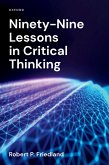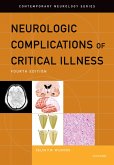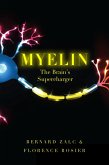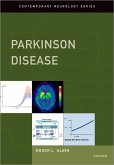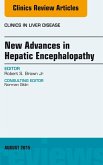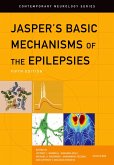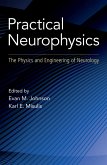Ninety-Nine Lessons in Critical Thinking (eBook, ePUB)


Alle Infos zum eBook verschenken

Ninety-Nine Lessons in Critical Thinking (eBook, ePUB)
- Format: ePub
- Merkliste
- Auf die Merkliste
- Bewerten Bewerten
- Teilen
- Produkt teilen
- Produkterinnerung
- Produkterinnerung

Hier können Sie sich einloggen

Bitte loggen Sie sich zunächst in Ihr Kundenkonto ein oder registrieren Sie sich bei bücher.de, um das eBook-Abo tolino select nutzen zu können.
Ninety-Nine Lessons in Critical Thinking was designed to enhance the reader's awareness of how they think and how decisions involving patients and scientific matters can be influenced by word choice, preconceived ideas, framing, biases, and inattentiveness. Entertaining and informative stories from the author's 45 year clinical and scientific experience and from the history of medicine and science are presented to illustrate ways in which critical thinking skills can be developed. Practical suggestions to improve doctor-patient interactions are included, with an emphasis on approaching care regarding the patient's life context and personhood.…mehr
- Geräte: eReader
- mit Kopierschutz
- eBook Hilfe
- Größe: 1.49MB
![Ninety-Nine Lessons in Critical Thinking (eBook, PDF) Ninety-Nine Lessons in Critical Thinking (eBook, PDF)]() Robert P. FriedlandNinety-Nine Lessons in Critical Thinking (eBook, PDF)37,95 €
Robert P. FriedlandNinety-Nine Lessons in Critical Thinking (eBook, PDF)37,95 €![Neurologic Complications of Critical Illness (eBook, ePUB) Neurologic Complications of Critical Illness (eBook, ePUB)]() Eelco F. M. WijdicksNeurologic Complications of Critical Illness (eBook, ePUB)103,95 €
Eelco F. M. WijdicksNeurologic Complications of Critical Illness (eBook, ePUB)103,95 €![Myelin (eBook, ePUB) Myelin (eBook, ePUB)]() Bernard ZalcMyelin (eBook, ePUB)18,95 €
Bernard ZalcMyelin (eBook, ePUB)18,95 €![Parkinson Disease (eBook, ePUB) Parkinson Disease (eBook, ePUB)]() Roger L. AlbinParkinson Disease (eBook, ePUB)91,95 €
Roger L. AlbinParkinson Disease (eBook, ePUB)91,95 €![New Advances in Hepatic Encephalopathy, An Issue of Clinics in Liver Disease (eBook, ePUB) New Advances in Hepatic Encephalopathy, An Issue of Clinics in Liver Disease (eBook, ePUB)]() Jr Robert S. BrownNew Advances in Hepatic Encephalopathy, An Issue of Clinics in Liver Disease (eBook, ePUB)48,95 €
Jr Robert S. BrownNew Advances in Hepatic Encephalopathy, An Issue of Clinics in Liver Disease (eBook, ePUB)48,95 €![Jasper's Basic Mechanisms of the Epilepsies (eBook, ePUB) Jasper's Basic Mechanisms of the Epilepsies (eBook, ePUB)]() Jasper's Basic Mechanisms of the Epilepsies (eBook, ePUB)144,95 €
Jasper's Basic Mechanisms of the Epilepsies (eBook, ePUB)144,95 €![Practical Neurophysics (eBook, ePUB) Practical Neurophysics (eBook, ePUB)]() Practical Neurophysics (eBook, ePUB)60,95 €
Practical Neurophysics (eBook, ePUB)60,95 €-
-
-
Dieser Download kann aus rechtlichen Gründen nur mit Rechnungsadresse in A, B, BG, CY, CZ, D, DK, EW, E, FIN, F, GR, HR, H, IRL, I, LT, L, LR, M, NL, PL, P, R, S, SLO, SK ausgeliefert werden.
- Produktdetails
- Verlag: OUP eBook
- Seitenzahl: 272
- Erscheinungstermin: 9. Januar 2025
- Englisch
- ISBN-13: 9780197756232
- Artikelnr.: 72679634
- Verlag: OUP eBook
- Seitenzahl: 272
- Erscheinungstermin: 9. Januar 2025
- Englisch
- ISBN-13: 9780197756232
- Artikelnr.: 72679634
- Herstellerkennzeichnung Die Herstellerinformationen sind derzeit nicht verfügbar.
* 1. The World Is Too Complex To Perceive Directly
* 2. The Key Factor Which Determines What We Perceive Is Our Attention
and How It Is Focused
* 3. Which Is Older, Stories or Books?
* 4. Be Fierce, Nurture an Intense and Ferocious Aggressiveness in the
Pursuit of Your Learning and the Benefit of Your Patients
* 5. "Listen to Your Patient, He Is Telling You the Diagnosis"
* 6. Be a Good Observer
* 7. Consider the Patient's Experience
* 8. Learn from Your Patients
* 9. Intellectualization Limits Your Compassion
* 10. Key Elements of the Patient Visit: The Interview and Deep
Listening
* 11. Words Influence Thought
* 12. The Physical Exam
* 13. Touch Is Important
* 14. Be Prepared for the Unexpected
* SECTION II DIAGNOSIS AND EVALUATION
* 15. The Fundamental Three- Step Approach to Diagnosis
* 16. A Mnemonic for Etiologies, VITAMINS ABCD
* 17. Investigations
* 18. Don't Be Afraid To Say You Don't Know
* 19. Information Toxicity
* 20. Treat the Patient, Not the Test
* 21. It's Good To Be Knowledgeable, but It Is Necessary to Also Be
Attentive to the Patient
* 22. Consider Toxic Exposures
* 23. Family History Is an Important Part of the Interview
* 24. Rare Presentations of Common Events Are More Common Than Common
Presentations of Rare Events
* 25. Symptoms and Signs Have Important Significance: The Absence of
Symptoms and Signs Is Not Always as Important as Their Presence
* 26. Salutogenesis: The Production and Maintenance of Health
* SECTION III MANAGEMENT
* 27. Get to Know the Patient and Show Interest (the Patient Is a
Person)
* 28. Learn from Clinical Experience (but Not Too Much)
* 29. Use the Placebo Response to Your Patient's Benefit
* 30. Tell the Truth Whenever Possible
* 31. Cognitive Function Is Relevant for All Areas of Medicine
* 32. You Are Primarily Responsible for Caring for the Patient, Not the
Family
* 33. Denial of Illness and Disability Can Be Shared by the Patient,
the Family, and the Doctor
* 34. Consider the Context of Care
* 35. Challenges to the Ability to Provide Humane Healthcare
* 36. Do Not Confuse Etiology with Pathophysiology
* 37. Communicate with the Patient
* 38. Be Attentive to Medications and Medication Errors
* SECTION IV CRITICAL THINKING
* 39. Think Deeply (Think Beyond the Obvious)
* 40. How Often Do Rare Events Occur?
* 41. Do Not Depend on Logic Alone
* 42. Although Intuition Cannot Replace Evidence, It Can Be Valuable
* 43. Should You Think Out of the Box?
* 44. All Models Are Wrong
* 45. Biomarkers Are Not the Disease Itself
* 46. Absence of Evidence Is Not Evidence of Absence
* 47. Being Wrong (at Times) Is OK
* 48. Much of What We Know Is Wrong (So Don't Believe Everything You
Read)
* 49. Smart People Make Mistakes
* 50. Fishing Expeditions May Be Productive
* 51. Manifestations of Bias
* 52. Experimenter Bias
* 53. Bias of the Lost Actors
* 54. Being Smart Is Not Enough
* 55. Don't Be Afraid of Your Imagination
* 56. Do Not Assume That Your Ideas Are Not Novel and Important Just
Because They Appear To Be Obvious
* 57. Consider the Evolutionary Aspects of Disease
* SECTION V PERSONAL AND CAREER DEVELOPMENT
* 58. Live in "Day-Tight Compartments"
* 59. Learn How To Learn and Enhance Your Learning Capacity
* 60. Find Out Where You Find Meaning
* 61. Search for Your Passion and Follow It (Gnaw Your Own Bone)
* 62. Learn to Critically Read the Literature
* 63. We Are All Neurologists
* 64. Neurology and Cardiology (Etc.) Don't Exist
* 65. Do Not Respect Boundaries, Be a Trespasser
* 66. Be Grateful
* 67. Look Beyond the Easiest Options and Pursue the Best Resources
Possible
* 68. Focus, but Not Too Much
* 69. Be Persistent and Tenacious
* 70. Do Not Be Intimidated by Accomplished Persons in Medicine and
Science
* 71. Accept the Help of Others
* 72. Pay Attention to Your Own Health and Learn How To Deal with
Stress
* 73. Learn from the History of Medicine and Science
* 74. Recognize Your Intellectual Ancestors
* 75. You Are an Educator- That's One of Your Most Important
Responsibilities
* 76. Learn To Be a Salesperson
* 77. Learn How To Learn from Bad Example
* 78. Remember Pierre Curie, Carl Wernicke, and Others
* SECTION VI DISCOVERY
* 79. What Is Science?
* 80. No Single Theory Ever Agrees with All the Facts
* 81. There Is Only One Kind of Science, and That Is the Study of
Everything with All Possible Methods
* 82. It's Good To Be First, but It Is Not Necessary
* 83. You Don't Need To Be Brilliant To Be a Researcher
* 84. Appreciate a Diversity of Approaches
* 85. Why Think When You Can Experiment?
* 86. Judge Every Project by Asking "What Difference Will It Make To
Know the Answer?"
* 87. What Is Important in Research
* 88. Do Not Be Obsessed with Technology and Methods
* 89. Pay Attention to Study Design, Data Analysis, and Statistics
* 90. Be Aware of (Beware of ) Statistics and Data Torturing
* 91. Pay Attention to the Assumptions of Diagnostic Testing and
Research Evaluations
* 92. It Is Possible To Be Productive from a Distance
* 93. You Can Make Contributions as a Clinician Without a Laboratory
* SECTION VII ETHICS
* 94. Never Whisper in the Presence of Wrong
* 95. You Are Responsible for Your Actions; You Cannot Let Others Take
Responsibility for You
* 96. The Need To Believe in the Guilty Victim
* 97. Compassion Is Part of Our Fundamental Nature
* 98. The Myth of Progress
* 99. Don't Be Ageist
* 1. The World Is Too Complex To Perceive Directly
* 2. The Key Factor Which Determines What We Perceive Is Our Attention
and How It Is Focused
* 3. Which Is Older, Stories or Books?
* 4. Be Fierce, Nurture an Intense and Ferocious Aggressiveness in the
Pursuit of Your Learning and the Benefit of Your Patients
* 5. "Listen to Your Patient, He Is Telling You the Diagnosis"
* 6. Be a Good Observer
* 7. Consider the Patient's Experience
* 8. Learn from Your Patients
* 9. Intellectualization Limits Your Compassion
* 10. Key Elements of the Patient Visit: The Interview and Deep
Listening
* 11. Words Influence Thought
* 12. The Physical Exam
* 13. Touch Is Important
* 14. Be Prepared for the Unexpected
* SECTION II DIAGNOSIS AND EVALUATION
* 15. The Fundamental Three- Step Approach to Diagnosis
* 16. A Mnemonic for Etiologies, VITAMINS ABCD
* 17. Investigations
* 18. Don't Be Afraid To Say You Don't Know
* 19. Information Toxicity
* 20. Treat the Patient, Not the Test
* 21. It's Good To Be Knowledgeable, but It Is Necessary to Also Be
Attentive to the Patient
* 22. Consider Toxic Exposures
* 23. Family History Is an Important Part of the Interview
* 24. Rare Presentations of Common Events Are More Common Than Common
Presentations of Rare Events
* 25. Symptoms and Signs Have Important Significance: The Absence of
Symptoms and Signs Is Not Always as Important as Their Presence
* 26. Salutogenesis: The Production and Maintenance of Health
* SECTION III MANAGEMENT
* 27. Get to Know the Patient and Show Interest (the Patient Is a
Person)
* 28. Learn from Clinical Experience (but Not Too Much)
* 29. Use the Placebo Response to Your Patient's Benefit
* 30. Tell the Truth Whenever Possible
* 31. Cognitive Function Is Relevant for All Areas of Medicine
* 32. You Are Primarily Responsible for Caring for the Patient, Not the
Family
* 33. Denial of Illness and Disability Can Be Shared by the Patient,
the Family, and the Doctor
* 34. Consider the Context of Care
* 35. Challenges to the Ability to Provide Humane Healthcare
* 36. Do Not Confuse Etiology with Pathophysiology
* 37. Communicate with the Patient
* 38. Be Attentive to Medications and Medication Errors
* SECTION IV CRITICAL THINKING
* 39. Think Deeply (Think Beyond the Obvious)
* 40. How Often Do Rare Events Occur?
* 41. Do Not Depend on Logic Alone
* 42. Although Intuition Cannot Replace Evidence, It Can Be Valuable
* 43. Should You Think Out of the Box?
* 44. All Models Are Wrong
* 45. Biomarkers Are Not the Disease Itself
* 46. Absence of Evidence Is Not Evidence of Absence
* 47. Being Wrong (at Times) Is OK
* 48. Much of What We Know Is Wrong (So Don't Believe Everything You
Read)
* 49. Smart People Make Mistakes
* 50. Fishing Expeditions May Be Productive
* 51. Manifestations of Bias
* 52. Experimenter Bias
* 53. Bias of the Lost Actors
* 54. Being Smart Is Not Enough
* 55. Don't Be Afraid of Your Imagination
* 56. Do Not Assume That Your Ideas Are Not Novel and Important Just
Because They Appear To Be Obvious
* 57. Consider the Evolutionary Aspects of Disease
* SECTION V PERSONAL AND CAREER DEVELOPMENT
* 58. Live in "Day-Tight Compartments"
* 59. Learn How To Learn and Enhance Your Learning Capacity
* 60. Find Out Where You Find Meaning
* 61. Search for Your Passion and Follow It (Gnaw Your Own Bone)
* 62. Learn to Critically Read the Literature
* 63. We Are All Neurologists
* 64. Neurology and Cardiology (Etc.) Don't Exist
* 65. Do Not Respect Boundaries, Be a Trespasser
* 66. Be Grateful
* 67. Look Beyond the Easiest Options and Pursue the Best Resources
Possible
* 68. Focus, but Not Too Much
* 69. Be Persistent and Tenacious
* 70. Do Not Be Intimidated by Accomplished Persons in Medicine and
Science
* 71. Accept the Help of Others
* 72. Pay Attention to Your Own Health and Learn How To Deal with
Stress
* 73. Learn from the History of Medicine and Science
* 74. Recognize Your Intellectual Ancestors
* 75. You Are an Educator- That's One of Your Most Important
Responsibilities
* 76. Learn To Be a Salesperson
* 77. Learn How To Learn from Bad Example
* 78. Remember Pierre Curie, Carl Wernicke, and Others
* SECTION VI DISCOVERY
* 79. What Is Science?
* 80. No Single Theory Ever Agrees with All the Facts
* 81. There Is Only One Kind of Science, and That Is the Study of
Everything with All Possible Methods
* 82. It's Good To Be First, but It Is Not Necessary
* 83. You Don't Need To Be Brilliant To Be a Researcher
* 84. Appreciate a Diversity of Approaches
* 85. Why Think When You Can Experiment?
* 86. Judge Every Project by Asking "What Difference Will It Make To
Know the Answer?"
* 87. What Is Important in Research
* 88. Do Not Be Obsessed with Technology and Methods
* 89. Pay Attention to Study Design, Data Analysis, and Statistics
* 90. Be Aware of (Beware of ) Statistics and Data Torturing
* 91. Pay Attention to the Assumptions of Diagnostic Testing and
Research Evaluations
* 92. It Is Possible To Be Productive from a Distance
* 93. You Can Make Contributions as a Clinician Without a Laboratory
* SECTION VII ETHICS
* 94. Never Whisper in the Presence of Wrong
* 95. You Are Responsible for Your Actions; You Cannot Let Others Take
Responsibility for You
* 96. The Need To Believe in the Guilty Victim
* 97. Compassion Is Part of Our Fundamental Nature
* 98. The Myth of Progress
* 99. Don't Be Ageist

